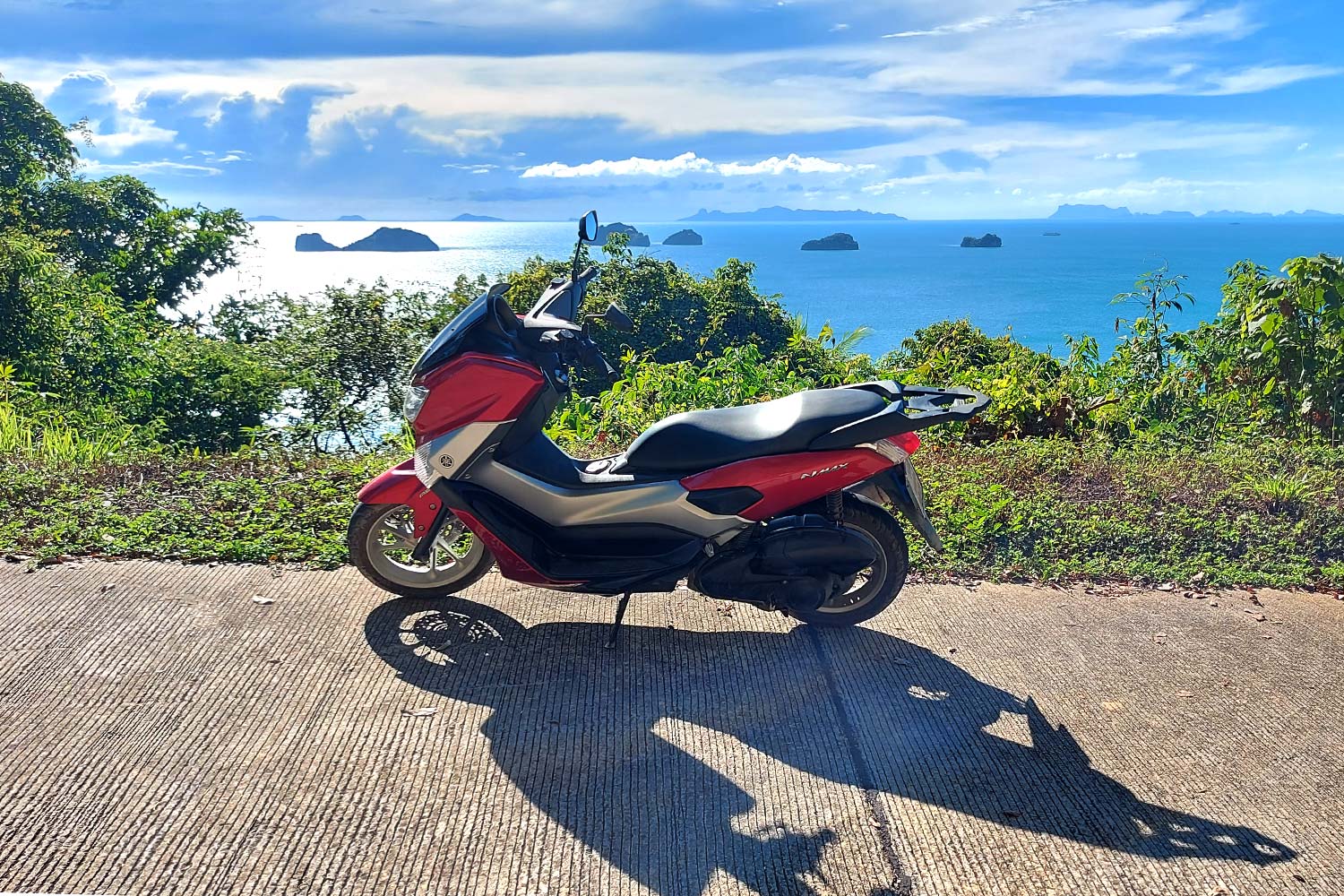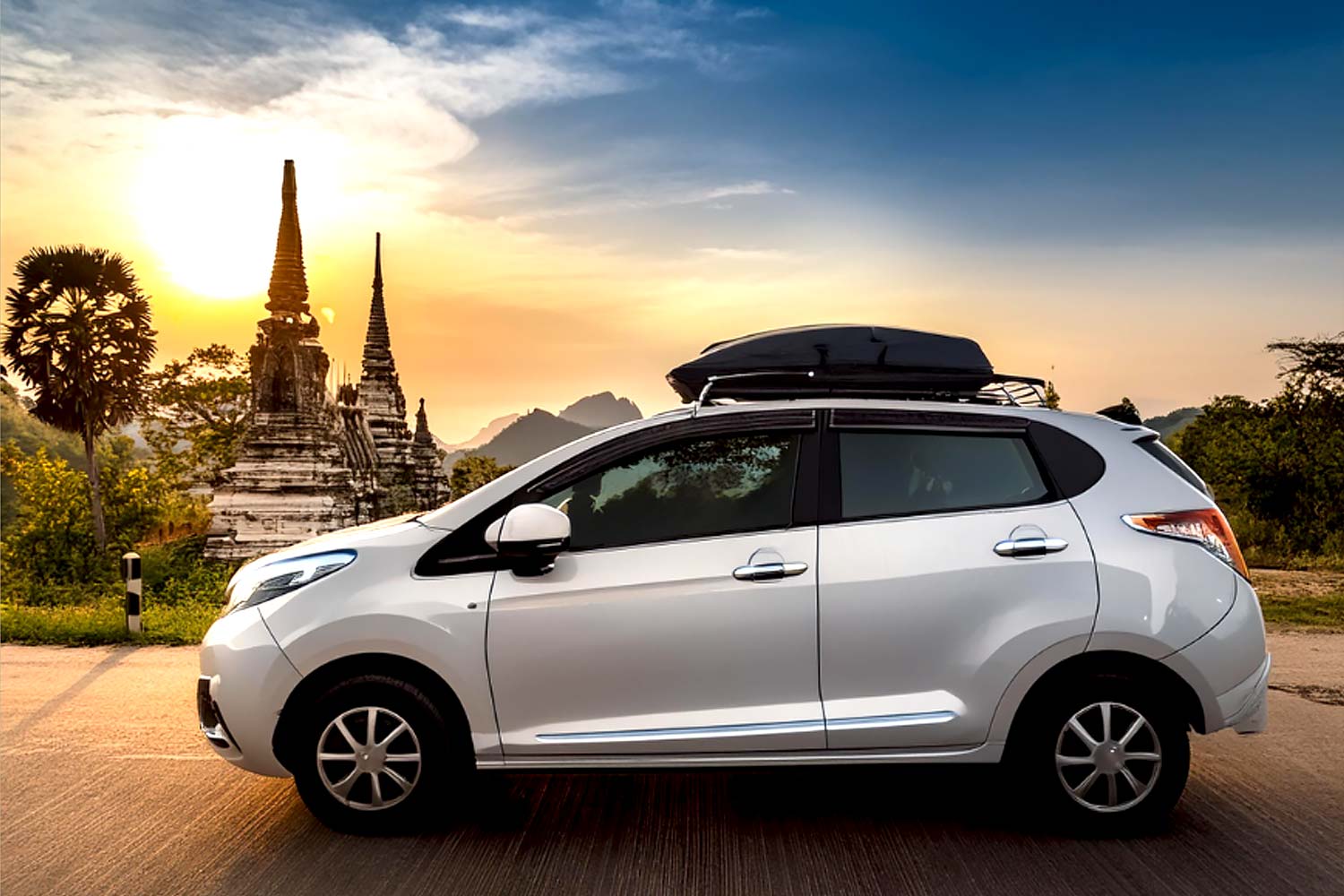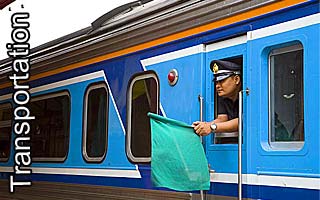Your Travel Guide to Thailand
All information & tips to prepare your trip in Thailand
Vehicle Rentals in Thailand: Scooters and Cars

Laws and Regulations to Know
Renting a vehicle during your vacation in Thailand means freedom, the possibility to go anywhere, and getting off the beaten path, but it can also turn into a nightmare, especially on a scooter. Here is a detailed guide on renting vehicles in Thailand, including scooters, motorcycles, and cars, with all the practical information, laws, and regulations you need to know, along with tips to ensure a smooth experience. This article is only for tourists who want to rent a scooter or a car in Thailand, not for expatriates.Find a rental car in Thailand
Driving on the Left
Thailand follows the British system of driving on the left. Be vigilant, especially at intersections and roundabouts.International Driving Permit Required
To rent and especially to drive a vehicle in Thailand, you must have an International Driving Permit (IDP) in addition to your national driving license. And if it is a motorcycle or scooter (regardless of its power), you must hold a motorcycle license in your country of residence and have it mentioned on the international permit. So, make sure your international driving license is valid and covers the vehicle categories you wish to drive in Thailand. If you plan to roam around on a rental scooter, I invite you to read my article on renting and driving a scooter in Thailand !The absence of an international permit or the appropriate license also results in the loss of your insurance coverage. Note that for Thailand, driving a scooter is often excluded from travel insurance contracts.
Helmet and Seatbelt Required
Wearing a helmet is mandatory for scooter and motorcycle drivers and passengers. And it is more than recommended given the high accident rate of two-wheelers on the roads of Siam ! Fines for non-compliance with this rule are frequent, especially in tourist areas. There are even sometimes police checkpoints dedicated to scooters and motorcycles.In cars, wearing a seatbelt is mandatory for all passengers. The fine for non-compliance is 2,000 THB. There is also a law, although rarely enforced, requiring children under 135 cm to be secured in a child seat.
Drinking and Driving in Thailand
In Thailand, the legal blood alcohol limit is 0.05% (or 0.02% for professional drivers and young drivers). Thailand strictly enforces this rule, and police checks are frequent, especially during the two major holiday weekends: New Year's Eve and Songkran in mid-April.Speed Limits in Thailand
Speed limits vary by area. In cities, the speed limit is 50-60 km/h, on secondary roads 80-90 km/h, and on highways 100-110 km/h depending on the type of road. This applies to individual cars.
Scooter Rentals in Thailand
There are scooter rental shops almost everywhere in the very touristy areas of Thailand. And since it's cheap, it's tempting to rent one. Too many tourists choose this option without having ever or almost never driven a scooter before. Unfortunately, many accidents, sometimes tragic, occur. Do not take scooter rental lightly!Necessary Documents
To rent a scooter in Thailand, you will need your passport, your international driving permit (with the ''A'' category option regardless of the power, not A1 to be in compliance). The rental agency will likely ask for a cash deposit. Some may ask you to leave your passport as a guarantee, but this is illegal. It is normal to photocopy it, but not to keep it as a pledge!A rental contract will be established between you and the rental agency (this is not always the case, but ask for one and an English version!), of which you should receive a copy.
Cost of Scooter Rental in Thailand
The cost of renting a scooter in Thailand varies greatly depending on the location, but on average, for a basic model, it ranges between 150 and 300 THB per day, or more for T-max or more powerful models. Discounts may be offered for long-term rentals.Insurance
Make sure the rented scooter is insured for damage suffered but also for damage caused to third parties. If possible, ensure that the insurance covers the driver as well (though this is very rare in Thailand). As mentioned, it is possible that scooter driving in Thailand is excluded from your personal travel insurance contract, so if the rental agency's insurance does not cover you, all expenses in the event of an accident will be your responsibility, and medical and hospitalization costs in Thailand can be very high.Some Tips Before Renting a Scooter
- Inspect the scooter before signing the rental contract. Take photos and videos. There have been reports of scams, especially in Phuket and Pattaya. This is also the case for jet-ski rentals in Thailand, although it is not the subject of this article.
- Always wear a helmet and appropriate clothing even if it's hot, as they will protect you in the event of an accident.
- Avoid driving at night or in the rain
- Do not ride more than 2 on a scooter, even if the Thais do it
- But ultimately, given the number of deaths on two wheels on the roads of Thailand, avoid renting a scooter and prefer renting a car! It is less dangerous, less complicated in terms of administration (international permit), and generally, the insurance contracts are much more protective (and at least exist, while many small rental agencies do not insure their scooters or only minimally)

Car Rentals in Thailand
I know, I'm insisting, but if you seek the freedom to move around as you wish during your trip to Thailand, opt for car rental instead. You are much better protected and insured, especially when going through international rental agencies.Necessary Documents to Rent a Car
To rent a car, you will need your passport, your international driving permit, and a credit card for the deposit (some rental agencies do not accept debit cards only).A contract will be signed between the two parties. These are much more comprehensive than scooter rental contracts.
How to Rent a Car in Thailand
The cost of renting a car in Thailand ranges between 800 and 1,500 THB per day, depending on the type of vehicle, the time of year, and the company. To avoid unpleasant surprises, I recommend going through the major international car rental companies Rentacar, Avis, Sixt, Hertz, or others. They can be found in all major cities, at least at airports. But the most convenient way, and it relies on these same international rental agencies, is to use the Rentalcars.com website. It allows you to book your vehicle in advance, often at a better price, and for some trips, to pick up the car in one city and return it in another.Insurance
With international rental agencies or the Rentalcars.com website, everything is squared away. But otherwise, make sure the car is properly insured. Basic insurance is usually included, but comprehensive insurance is highly recommended for peace of mind.Practical Tips for Car Rental
- Inspect the car before taking it and note any existing damage on the contract
- Familiarize yourself with the local driving rules before venturing onto the roads of Siam. It’s not just about driving on the left but also different habits that you will need to adapt to.
- Drive carefully, especially on country roads where stray dogs are common.
- Watch out for two-wheelers; they can appear from anywhere, even against the traffic.

